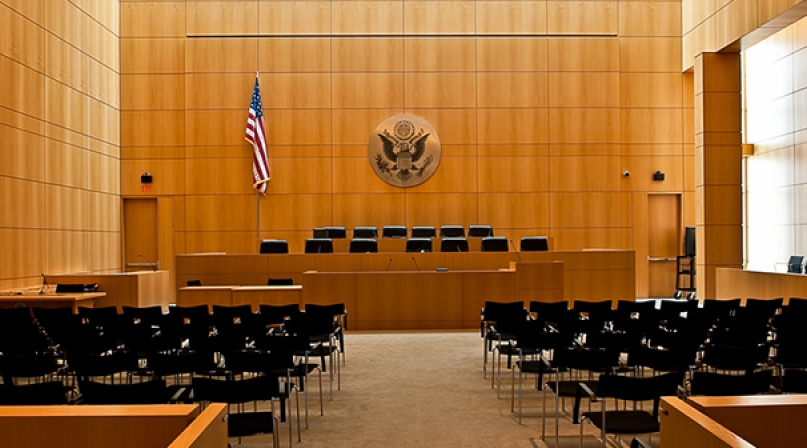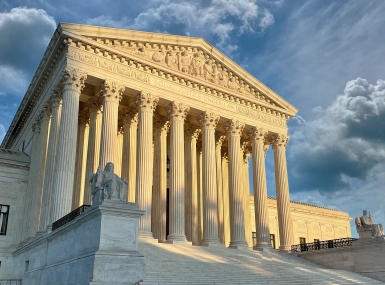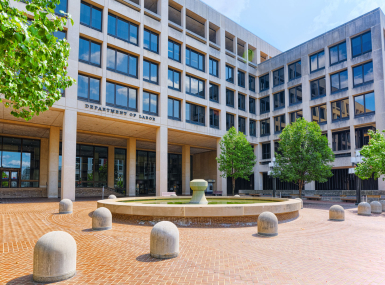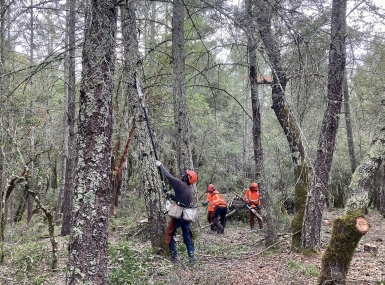U.S. Supreme Court issues narrow decision in malicious prosecution case
Author
Upcoming Events
Related News

Key Takeaways
On June 20, the U.S. Supreme Court issued a 6-3 ruling in Chiaverini v. Ohio, a case focused on the relationship between probable cause and malicious prosecution claims against local government. The petitioner, a jewelry store owner whose malicious prosecution lawsuit against the City of Napoleon, Ohio was dismissed by the Sixth Circuit because one of the several charges against him had probable cause. He asked the Court overturn that ruling on the grounds that a "charge-specific rule" should apply, allowing for a malicious prosecution claim to move forward for an invalid charge brought alongside charges supported by probable cause, even if it did not cause or lengthen a detention.
- County nexus: This case has implications for the ability of private citizens to file costly civil rights claims against police for alleged malicious prosecution, the vast majority of which are meritless but costly to litigate.
- NACo advocacy: In Local Government Legal Center Amicus Brief in support of the respondent, NACo urged the Court not to adopt the "charge-specific" rule urged by the petitioners, which would increase liabiltiy for counties indemnifying police officers and run the risk of creating a chilling effect on law enforcement and prosecutors. Learn more here.
- The Court's ruling: On June 20, the Court issued a 6-3 ruling that narrowly favored the petitioner, holding that that the existence of probable cause for one charge does not “create a categorical bar” against a malicious prosecution claim relating to other charges and vacating the Sixth Circuit's ruling to the contrary. However, the Court did not reject the respondent's position, echoed by the LGLC amicus brief, that unless the invalid charge caused or lengthened a detention, there is no Fourth Amendment violation. Learn more here.
While the Court's decision favored the respondent and remanded the case back to the Sixth Circuit, it does not meaningfully shift existing law and should not have a significant impact on the ability of counties to defend against claims of malicious prosecution so long as they did not extend or cause a detention.
2024-2025 Supreme Court Term

NACo Legal Advocacy: Ames v. Ohio Department of Youth Services
As one of the largest employers in the country, counties have a significant interest in cases like Ames v. Ohio Department of Youth Services (Ames v. Ohio) that could expand county liabilities as employers.

NACo Legal Advocacy: City of Seattle et al. v. Kia/Hyundai
The question at hand in City of Seattle et al. v. Kia/Hyundai is whether or not the Federal Motor Vehicle Safety Standard preempts state tort claims brought forth by local governments alleging that Kia and Hyundai’s failure to install “reasonable” anti-theft technology constitutes negligence and public nuisance.

NACo Legal Advocacy: Perttu v. Richards
Perttu v. Richards has implications on the Prison Litigation Reform Act (PLRA) and could increase the amount of Section 1983 inmate-initiated cases against county jails that reach federal court, ultimately resulting in counties having to expend resources on frivolous lawsuits.

NACo Legal Advocacy: McLaughlin Chiropractic Associates, Inc. V. McKesson Corporation
McLaughlin Chiropractic Associates, Inc. V. McKesson Corporation could make it more difficult for counties to challenge FCC orders, many of which have taken steps to preempt and curtail local authority by limiting counties’ abilities to manage their own right of way and assess fair market value permitting and impact fees on providers seeking to construct, modify or extend telecommunications infrastructure in their communities.

NACo Legal Advocacy: San Francisco v. Environmental Protection Agency (EPA)
San Francisco v. Environmental Protection Agency (EPA) has implications for the ability of county governments that own and operate wastewater treatment facilities to comply with National Pollutant Discharge Elimination System (NPDES) permit requirements.

NACo Legal Advocacy: Lackey v. Stinnie
Lackey v. Stinnie will impact the ability of state and local governments to avoid paying litigation fees in a civil rights case if they change their conduct (i.e. repeal a law) after a court has granted a preliminary injunction.

NACo Legal Advocacy: Bondi v. VanDerStok
Garland v. VanDerStok has implications for the ability of county law enforcement to uphold public safety and investigate crimes involving ghost guns.

NACo Legal Advocacy: Stanley v. City of Sanford
Stanley v. City of Sanford will impact the ability of county governments to balance budgets by reducing or eliminating post-employment benefits for disability retirees.

NACo Legal Advocacy: EMD Sales, Inc. v. Carrera
EMD Sales, Inc. v. Carrera could make it more difficult for county governments to prove exemptions under the Fair Labor Standards Act (FLSA), which would increase the potential for costly litigation.

NACo Legal Advocacy: Federal Communications Commission, et al v. Consumers' Research, et al
Federal Communications Commission, et al v. Consumers’ Research, et al. (FCC v. Consumers’ Research) could jeopardize what is known as the Universal Service Fund (USF). Through the USF, the FCC has provided billions of dollars to local governments and our residents, helping provide essential telecommunications and broadband services to unserved and underserved communities. FCC v. Consumers’ Research challenges the FCC’s legal authority behind the USF, putting multiple programs essential to equitable broadband deployment at risk.
Featured Initiative
Supreme Court Advocacy Hub

Related News

U.S. House reintroduces legislation to address the Medicaid Inmate Exclusion Policy
Two bipartisan bills aimed at addressing the Medicaid Inmate Exclusion Policy (MIEP) were recently reintroduced in the U.S. House of Representatives.

FEMA halts disaster mitigation grant program
On April 4, the Federal Emergency Management Agency (FEMA) announced it will not allocate $750 million this year for the Building Resilient Infrastructure and Communities (BRIC) grant program. According to the press release, FEMA will also stop funding BRIC projects that were previously approved and are still underway.

Counties support youth with a second chance opportunity
A Riverside County, Calif. supervisor took experiences from his former life as a teacher to help create a program that serves students who had gone the juvenile justice system and were looking for a second chance.
